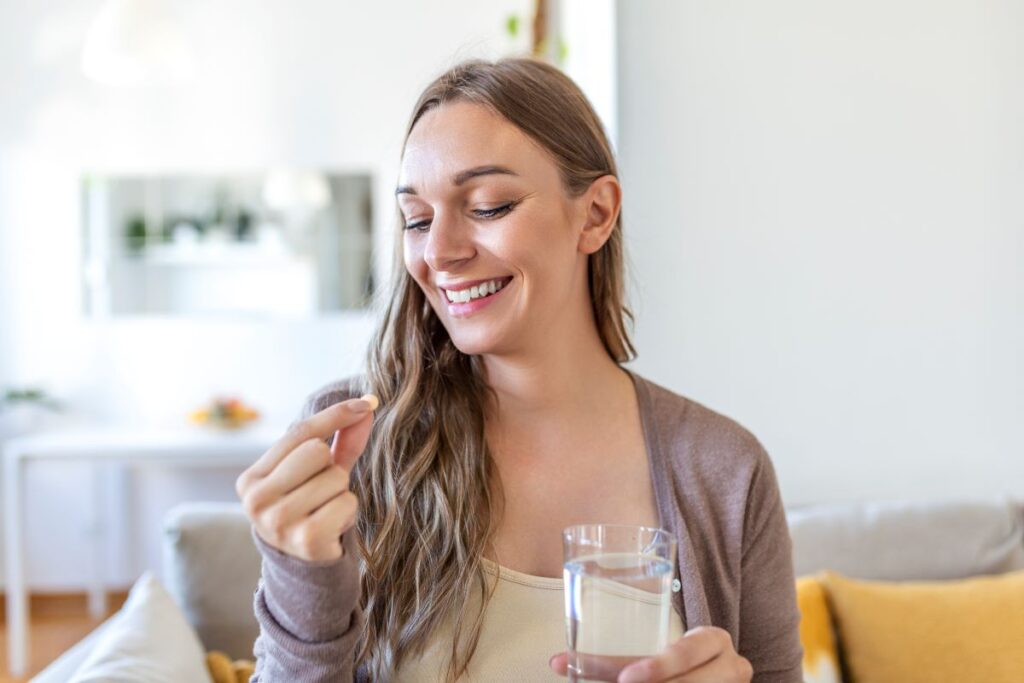Unexpected Remedies for Alleviating Discomfort: Insights and Tips

By Paige Mandel, MS, RD
1. Stomach Discomfort? – Ditch the Iced Coffee
If you’re anything like me, this one hits home for you. I’m that person bundled up in a snow storm, still sipping on an iced coffee. News flash! Research shows that hot coffee is actually superior in aiding digestion. If you’re having any gastrointestinal discomfort such as bloating or constipation, this small swap may be a game changer for you. The warmer temperature of the hot beverage has favorable effects on intestinal motility as it dilates the blood vessels in the gut. While there is no evidence that a cold beverage causes any harm in digestion, if you’re experiencing discomfort, sip on something warm.
2. Histamine Intolerance?- Be mindful of these foods, and hold off on the leftovers
While histamine is often associated with the body’s immune response, food and beverages also contain varying levels of histamine. Some of the foods that have been reported to have lower histamine levels include fresh meat, chicken, some fresh fruits and vegetables, grains, pasteurized milk, and herbal teas1. Foods reported to contain higher levels of histamine include eggplant, pickled or canned foods, matured cheeses, smoked meats, shellfish, beans, long stored nuts, and chocolate or cocoa based products1. Additionally, certain foods have been reported as histamine releasers such as most citrus fruits, walnuts, peanuts, papaya, pineapple, plums, kiwi, bananas, legumes, tomatoes, wheat germ, vinegars, and additives1. While each individual’s tolerance will be different, consider keeping a mindful food journal to identify the consumption of foods containing high histamine levels or histamine releasing foods with the onset or exacerbation of symptoms.
Even foods deemed to contain a low amount of histamine, could be contributing to your symptoms. This is because both the cooking methods and cooling methods could influence the histamine levels in your food. Studies show that boiling will have the least affect on altering histamine levels, compared to frying and grilling, of which may increase levels2. Therefore, if you are experiencing symptoms of histamine-sensitivity such as rashes, diarrhea, headaches, flushing, irregular heartbeat, etc. consider your cooking method as a possible trigger2. Lastly, the way food is cooled and stored can affect histamine levels, often increasing as the food ages, spoils or ferments. This is not to say avoid these foods, but rather be your own explorer, and observe how you feel after consuming your meals and snacks. Ask yourself does this make me feel well? Do I experience belly discomfort after eating this? A Mindful Meal Log could help you identify the answers to these questions to feel your very best.
3. Recurring Yeast Infections? – Explore a Probiotic
Are you struggling with recurring yeast infections? Exploring a probiotic might help you to alleviate your discomfort. Probiotics have been studied to improve symptoms of an active yeast infection as well as the potential to prevent reoccurring infections. It is most important when choosing between which probiotic on the shelf or screen to select, to look at the ingredients label. First and foremost, you want to make sure yeast is not an ingredient in the probiotic you select. Secondly, you want to look for the strain Lactobacillus acidophilus, as the evidence demonstrates its’ correlation with improved symptoms associated with yeast infections3. Additionally, foods such as yogurt, lassi, kefir, miso, and tempeh naturally contain L. acidophilus and can further contribute to maintaining the balance of bacterial growth and thus prevent the overgrowth of yeast. Make sure not to group together yeast infections and urinary tract infections under the same umbrella, as treatment is individualized. For example, A 2015 review of 9 studies (735 participants) of probiotics for the prevention of urinary tract infection did not find evidence of a beneficial effect4. To help find the latest answers on probiotics, also consider a visit to www.ConsumerLabs.com. This is a third-party company that tests a variety of brands for the accuracy and quality of their product. If you have a poor immune system or are critically ill, do not take probiotics. Always consult your medical doctor before taking any probiotic or supplement. Supplements are not regulated by the Food and Drug Administration.
4. Can’t Sleep? – Try Mindful Meditation
Many of us question, why it is so hard to turn off our brains and fall asleep. Sleep is essential to optimal human functioning, as we need to recharge and reset overnight. If you find yourself struggling, tossing and turning, you may find it helpful to download the Insight Timer app. This is in no way a sponsored recommendation, but rather our recommendation as dietitians exploring the ins and outs of the autonomic nervous system, more specifically the power of activating the parasympathetic nervous system, commonly referred to as “rest and digest”. Dr. Herbert Benson coined the term “the relaxation response”, as “a deep physiological shift in the body that’s the opposite of the stress response”5. A randomized trial performed in 2015 studied this response, in the relationship between mindfulness meditation and sleep quality in middle aged and older adults with sleep difficulties. This study divided the participants into two groups, one having completed a six-session mindfulness awareness program that taught them meditation and other exercises designed to help them focus on “moment-by-moment experiences, thoughts, and emotions”, and the other half completed a sleep education class centered around tools to improve their sleep habits5,6. The results of the study showed comparably the participants in the mindfulness group had less insomnia, fatigue, and depression at the end of the six sessions. Don’t knock it ‘till you try it, download the free Insight Timer app, that contains guided meditations and talks led by the world’s top meditation and mindfulness experts, neuroscientists, psychologists, and teachers from Stanford, Harvard, the University of Oxford, and more. Your future, rested -self will thank you.
5. High Stress? – Gratitude Journal
Considering the current times, amidst a continuing global pandemic, many of us are experiencing higher than normal stress levels. Whether it is feeling sedentary, stuck in the house working from home, financial hardship, a lack of social connection, or the many stressors in between, we all could use a little extra self-care during these trying times. By practicing gratitude, we can neurochemically trigger the release of dopamine and serotonin, the neurotransmitters responsible for our emotions, otherwise known as the “happy hormones”. This can enhance your mood, and help better manage the negative emotions7. If we consciously practice gratitude daily, we can train these neural pathways, to help create a happier headspace, from the inside out. Gratitude can be expressed in many forms, to others and to ourselves. There is no gratitude too big or too small. Start with yourself, by practicing writing down 3 thoughts or feelings of gratitude each night before bed. This self-care practice can help you mindfully produce a feeling of long lasting happiness. You can purchase a gratitude journal online as well, an example linked here.
References:
1. The Food List. Histamine Intolerance. Accessed February 7, 2021. https://www.histamineintolerance.org.uk/about/the-food-diary/the-food-list/
2. Chung BY, Park SY, Byun YS, et al. Effect of Different Cooking Methods on Histamine Levels in Selected Foods. Ann Dermatol. 2017;29(6):706-714. doi:10.5021/ad.2017.29.6.706
3. Pendharkar S, Brandsborg E, Hammarström L, Marcotte H, Larsson P-G. Vaginal colonisation by probiotic lactobacilli and clinical outcome in women conventionally treated for bacterial vaginosis and yeast infection. BMC Infect Dis. 2015;15(1):255. doi:10.1186/s12879-015-0971-3
4. Probiotics: What You Need To Know. NCCIH. Accessed February 7, 2021. https://www.nccih.nih.gov/health/probiotics-what-you-need-to-know
5. Corliss J. Mindfulness meditation helps fight insomnia, improves sleep. Harvard Health Blog. Published February 18, 2015. Accessed February 7, 2021. https://www.health.harvard.edu/blog/mindfulness-meditation-helps-fight-insomnia-improves-sleep-201502187726
6. Black DS, O’Reilly GA, Olmstead R, Breen EC, Irwin MR. Mindfulness Meditation and Improvement in Sleep Quality and Daytime Impairment Among Older Adults With Sleep Disturbances: A Randomized Clinical Trial. JAMA Intern Med. 2015;175(4):494. doi:10.1001/jamainternmed.2014.8081
7. The Neuroscience of Gratitude and How It Affects Anxiety & Grief. PositivePsychology.com. Published April 9, 2019. Accessed February 7, 2021. https://positivepsychology.com/neuroscience-of-gratitude/







